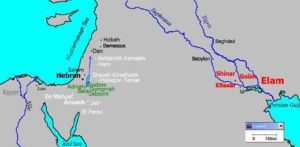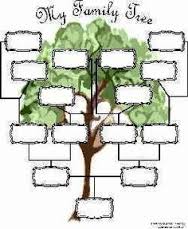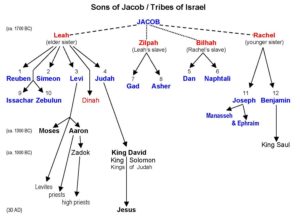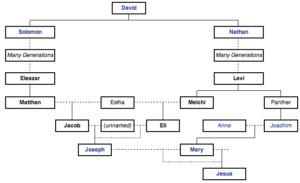For most of Hebrews the author has been comparing one thing to another. Jesus was compared to prior prophets, he was compared to kings, he was compared to Moses, He was compared to Angels. Jesus was always proven superior or supreme over anything or anyone he was compared to. The covenant he represents is superior to the covenant before. His high priesthood is superior to the priesthood that the Hebrew readers knew so well. And for a long time in the book of Hebrews Jesus was compared to a man named Melchizedek. We can assume that Jesus is superior to Melchizedek, but there’s a bit more to understand because the ministry of Jesus and the priesthood of Jesus can only be understood if we know who Melchizedek is. In fact, it may be that many Jews would have rejected the priesthood of Jesus Christ if they didn’t understand the man of Melchizedek and how the two are related. This part of Hebrews goes into a greater detail about him, so let’s read Hebrews 7:1
This Melchizedek was king of Salem and priest of God Most High. He met Abraham returning from the defeat of the kings and blessed him,
So to understand what’s being written about here, we have to go back. Way back to Abraham. Abraham’s the man that was called by God in Genesis 12. He was given all these promises, a promise about taking possession of land, a promise about descendants being numerous and a great nation, and third a promise that all nations ultimately being blessed from his offspring. He was to leave the land of his fathers and go forward to a place that God would show him. He brought his nephew Lot. He spent some time in Egypt and grew very wealthy. He then separated from Lot, who went to the cities in Sodom, while Abraham stayed in the pastures in Canaan. Now although both Abraham and Lot were successful, there was trouble brewing in the land. Genesis 14 starts to discuss the kingdoms and political rebellions that had been going on throughout the region.
4 Kings (right side in red):
Amraphel – Shinar / Babylonia
Arioch – Ellasar
Kedorlaomer – Elam
Tidal – Goyim
Went to war against 5 rebel kings (left side in Green)
Bera – Sodom
Birsha – Gomorrah
Shinab – Admah
Shemeber – Zeboyim
Bela – Zoar
The confrontation happened at the battle of Siddim in the tar pits (bottom of Dead Sea)
The 5 rebel kings were subject to Kedorlaomer for 12 years. In year 14, Kedorlaomer went to battle against the Rephaites in Ashteroth Karnaim, the Zuzites in Ham, the Emites in Shaveh Kiriathaim and the Horites in the hill country of Seir, as far as El Paran near the desert. Then they turned back and went to En Mishpat (that is, Kadesh), and they conquered the whole territory of the Amalekites, as well as the Amorites who were living in Hazezon Tamar.
There’s all this buildup about what’s happening. Kedorlaomer of Elam is on a rampage, Rephaites, Zuzites, Emites, and Horites were all toppled at his strength, then he turned back and conquered Kadesh, the Amalekites, and the Amorites. So this Kedorlaomer is unstoppable, and he has 3 other kings that he’s allied with. But there are 5 rebel kings. So it’s 4 on 5, and the battle lines are drawn up. The first 9 verses of Genesis 14 are painting this picture, and next verse Genesis 14:10. The kings of Sodom and Gomorrah are retreating into the tar pits. All this buildup, and we don’t even hear about any battle, besides that Sodom and Gomorrah are retreating into tarpits. Now remember, Lot settled in Sodom, and his King was just defeated, so the land that Lot lived in was being carved up and taken by Kedorlaomer and the 3 allied kings.
Word of this reaches Abram, and although Lot and Abraham parted ways and weren’t on the best of terms, Abram prepares to battle the most dangerous army in the region. Abram has 318 men, but remember Genesis 12: he also has God’s blessing on his side. Now throughout the Old Testament, you see lots of battles, and the most decisive victories are when the human element is vastly out manned, out skilled, out gunned. Obviously there weren’t guns at that point so that phrase doesn’t make sense. But the underdogs tended to win heartily when God was on their side. God made it clear that He was the only possible source of victory. That the more we rely on his power, and the less we rely on our human knowledge and human wisdom, the better we do.
Abram brought 318 trained men and fought during the nights, routing the enemy all the way to Dan. He recovered all of Lot’s possessions and his family. The bible says that the King of Sodom comes out to visit Abram, but before he can, another King appears. Enter Melchizidek. Genesis 14:18-20
18 Then Melchizedek king of Salem brought out bread and wine. He was priest of God Most High, 19 and he blessed Abram, saying, “Blessed be Abram by God Most High, Creator of heaven and earth.
20 And praise be to God Most High, who delivered your enemies into your hand.”
In Genesis 14, we see a society where might makes right, where only the strong and ruthless survive. You see kings fighting kings, and you don’t even know who to root for, because they are all evil in their own ways. This is not just Genesis 14, it’s how all of history was! You look back and history books are marked by wars and conquests. It’s just one battle after another, one war after another. The relative peace that we enjoy today is a huge exception to the rule of humanity which is, “struggle, fight, and die.” Abram defeats Kedorlaomer in battle, but something very interesting happens before Abram continues on to meet the King of Sodom. We see another King. Melchizedek. It’s written as a name, but it’s more of a title. Melchi means king and Zidek means Righteousness. So He’s a King of Righteousness. There was a possessive pronoun meaning it more likely meant “My King is Righteousness”. The Bible says he’s the King of a place called Salem, which means peace. Many scholars believe that Salem is ancient Jerusalem. So not just a King of Jerusalem, but a king who represents righteousness and Peace. Listen to all the kings we were introduced to before. There were 5 kings who were fighting 4 kings. The 4 kings led by Kedorlaomer defeated 6 other cities before quelling the rebellion of 5 kings. And not once is this King of Salem mentioned. The whole region is taking sides, drawing up battle lines, and never is Melchizedek mentioned, so he seems to be above all of it. Abram meets him, and Melchizedek brings out two gifts. Bread and Wine. This is pointing to a future covenant and something that will happen in the distant future. The Holy Communion and Last Supper aren’t without a precedent. He isn’t a warrior like other kings. He is a priest. A Man of God. Unlike every king we’ve read about so far, he doesn’t come to attack and take. He comes to bless and give. And he’s not just any priest, worshipping any God. He is a priest of the God Most High. So he gives a blessing from God Most High. He praises God and blesses Abram. Let’s keep reading Hebrews 7
2 and Abraham gave him a tenth of everything. First, the name Melchizedek means “king of righteousness”; then also, “king of Salem” means “king of peace.” 3 Without father or mother, without genealogy, without beginning of days or end of life, resembling the Son of God, he remains a priest forever.
Abraham tithed to Melchizedek, which means he was a legitimate priest. We will talk about the significance of that tithe later. But we have a man Melchizedek who doesn’t come to attack, but to give and bless. He is SUPER mysterious because he doesn’t have a lineage or a genealogy. Some of us are interested in family trees and heritage. It’s a fun hobby, but for the Jews, their lineage was very important. Were you part of the tribe of Benjamin, were you a Levite? Your tribe was part of your identity. Some of the books of the Old Testament, like the book of Numbers, seem to be just long lists of who begat who and who’s kids belonged to whom. To a guy like me, it’s super boring! But the Jewish priesthood hinged on having everything make sense. Everything had to follow just the right rule. If you wanted to be a priest, you had to be part of Levites, like Aaron. If you wanted to be king, you had to be a descendant of David. If you were a Jew by blood, you had to trace your lineage back to Israel. There were rules. And this is one rule that was strictly outlined. However, this man Melchizedek was without lineage. He resembled the Son of God because he didn’t have a genealogy. We only hear about Melchizedek for 3 verses in Genesis, but not again until Psalm 110. Most teachers of the Law thought that Psalm 110 was Messianic, meaning pointing towards a savior or messiah. In Psalm 110, God said something different about the priesthood. Psalm 110 is a Psalm of David, and David says, “the Lord says to My Lord”. Remember, Jesus asked teachers of the law to think about that beginning clause, and thinking about that blows the minds of Jewish Scholars, because David refers to one of his descendants as, “My Lord”. And in that Psalm God responds, “You are a priest forever, in the order of Melchizedek.” Jewish priesthood was Levitical, it traced back to Aaron. It had various high priests who served various terms. But here, God is talking about a superior priesthood where the Priest lasts forever. And the order isn’t Levitical, but Melchizedek-ian. Let’s read more from Hebrews 7:
4 Just think how great he was: Even the patriarch Abraham gave him a tenth of the plunder! 5 Now the law requires the descendants of Levi who become priests to collect a tenth from the people—that is, from their fellow Israelites—even though they also are descended from Abraham. 6 This man, however, did not trace his descent from Levi, yet he collected a tenth from Abraham and blessed him who had the promises. 7 And without doubt the lesser is blessed by the greater.
The author is describing how great Melchizedek is here. So great that Abraham decided to Give him a tithe. There was no compelling or forcing one person’s property on another. Love is greater than force. And the Love of God makes us generous and kind people. Abraham gives a tithe to Melchizedek before the Law and tithing regulations exist. Abraham’s seed Levi collects a tithe later on from other of Abraham’s seed, but it’s written as part of the Law. It’s also Israelites collecting from other Israelites. This first tithe was Abraham giving to a non-Israelite, or essentially directly to God. Melchizedek represented God, because he accepted a tithe and gave a blessing from God. Melchizedek blessed Abraham, the man who had the promises. Who’s greater in this exchange? Melchizedek. He gave God’s blessings and took the tithe.
8 In the one case, the tenth is collected by people who die; but in the other case, by him who is declared to be living. 9 One might even say that Levi, who collects the tenth, paid the tenth through Abraham, 10 because when Melchizedek met Abraham, Levi was still in the body of his ancestor.
All subsequent tithing throughout history is actually just Abraham’s descendants paying each other. The real tithe came from Abraham Himself. Any time a Levite accepts a tithe, it’s really just borrowed money because he’s payed it through Abraham’s act towards Melchizedek.
11 If perfection could have been attained through the Levitical priesthood—and indeed the law given to the people established that priesthood—why was there still need for another priest to come, one in the order of Melchizedek, not in the order of Aaron? 12 For when the priesthood is changed, the law must be changed also. 13 He of whom these things are said belonged to a different tribe, and no one from that tribe has ever served at the altar.
Here the author breaks down the argument that we are justified by law, that perfection or completion could be reached by following the Old Covenant and achieving the law. If perfection could be reached by the Law, why does God make a promise to come up with a new priesthood, one on the order of Melchizedek? This is a very academic argument against salvation by works, or justification by us following the law. We can just ask ourselves if we feel good enough or perfect enough to be right before God, and if we are honest, we see the need to be justified. To be made righteous. Even if we don’t see that need, if we study the Bible, God alludes to a new covenant and a new Law in the future. One that would be permanent. Now the Author brings up Jesus (referred to as “our Lord”), who should have been in the back of our minds this entire time.
14 For it is clear that our Lord descended from Judah, and in regard to that tribe Moses said nothing about priests. 15 And what we have said is even more clear if another priest like Melchizedek appears,
Jesus descended from Judah. This is reiterated in the beginning of two of the Gospels. He is from the line of David. The Line of Kings. Verse 14 admits that the Law doesn’t say anything about priests from the line of Kings. One could argue that Jesus was a legitimate King, but what about a priest? He is not a priest in the order of Aaron, but one in the order of Melchizedek, who was a King of Righteousness and a King of Peace. A King who was also a priest. Now what else does being a priest on the order of Melchizedek mean? Verse 16-17.
16 one who has become a priest not on the basis of a regulation as to his ancestry but on the basis of the power of an indestructible life. 17 For it is declared: “You are a priest forever, in the order of Melchizedek.” 18 The former regulation is set aside because it was weak and useless 19 (for the law made nothing perfect), and a better hope is introduced, by which we draw near to God.
If you look back to the promise in Psalm 110, it said you are a priest forever. Forever. That’s a long time. One who dies or who is not eternal can NOT occupy that priesthood, so Jesus needed to have an indestructible life. We realize that only Jesus can hold that priesthood, because he rose from the dead. Jesus’ resurrection was such a game changer that the former regulation had to be set aside. The law had reached its perfection or it’s completion in Jesus Christ. God introduced the Better hope in Jesus. And verse 19 explains that Jesus is the way we draw near to God.
20 And it was not without an oath! Others became priests without any oath, 21 but he became a priest with an oath when God said to him: “The Lord has sworn and will not change his mind: ‘You are a priest forever.’” 22 Because of this oath, Jesus has become the guarantor of a better covenant.
Sticklers of the law might say this is all changing the rules in the middle of the game. There’s no precedent for this, and we are basically just cheating in order to make Jesus be all that we want him to be. Is Jesus’ priesthood just some sort of legal hack or trick? How do we know Jesus was the real deal? So this priesthood that allows for Jesus to be a King and a Priest, and not in the line of Aaron seems like too much handwaving and not really what God had been saying all this time, right? Again, the teachers of law, Pharisees, and Sadducees might have made that argument, but how does God make promises? How is God’s law and instruction decreed? By making an oath! And God DID make an oath that actually promised that the priesthood would end up different than the Aaron and Levitical priesthood outlined in the Old Covenant. Again the author uses legal and contractual terms to explain Jesus legitimacy. He used these terms in Hebrews 6 when discussing how Jesus was an Anchor for our soul. God made an oath, or a Guarantee. And Jesus has become the Guarantor of the Covenant. Nobody else could be a guarantor of that covenant because nobody else could be a forever priest, except for maybe Elijah. Let’s read on:
23 Now there have been many of those priests, since death prevented them from continuing in office; 24 but because Jesus lives forever, he has a permanent priesthood. 25 Therefore he is able to save completely[c] those who come to God through him, because he always lives to intercede for them.
There have been many priests throughout the years. Priests that fit the rule of being part of the line of Levi and Aaron. But all of them ended their terms by dying. Death ended the priesthood, and the office. The Resurrection of Jesus served to show us that he was who he said he was, and that he could conquer death, but it also placed on him a very unique distinction. He lives forever, so his priesthood is permanent. What does that mean for us? Jesus is able to save us completely. Anyone who approaches God through HIM can be made righteous before God. Our sin that made us enemies of God has been cleansed, and now we are at peace with God. Through Jesus christ. Through him only. And he will never die. His term or his office will never end. He can save us completely, permanently, forever. Jesus is Alive and he is living to intercede for us!
26 Such a high priest truly meets our need—one who is holy, blameless, pure, set apart from sinners, exalted above the heavens. 27 Unlike the other high priests, he does not need to offer sacrifices day after day, first for his own sins, and then for the sins of the people. He sacrificed for their sins once for all when he offered himself. 28 For the law appoints as high priests men in all their weakness; but the oath, which came after the law, appointed the Son, who has been made perfect forever.
When we are honest, we realize that Jesus Christ is what we need. God is a God who provides for our needs. And an eternal high priest truly meets our need. Because we aren’t perfect, because we are to blame, because we are sinners, and because we face death, we need one who is perfect, blameless, sinless, and has conquered death, one who has conquered sin. We need someone who will be our priest not just today, but tomorrow, and forever. This high priest doesn’t need to make sacrifices day after day. This high priest doesn’t need to make sacrifices for his own failures and sins. He is able to make a once and for all sacrifice by offering himself. High priests in the past were appointed in their weakness, but God’s oath appointed his only begotten Son to be our high priest forever. Permanently. This is Jesus Christ, our High Priest, our King of righteousness and our King of Peace.









One thought on “Hebrews 7”